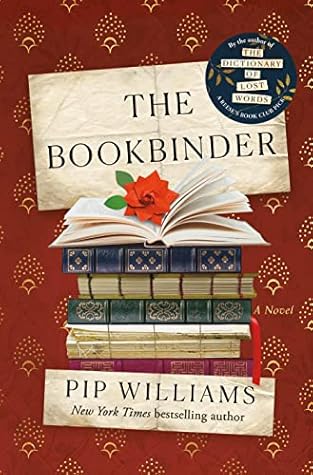More on this book
Community
Kindle Notes & Highlights
Why do we have so many books? I liked to ask. To expand your world, she would always say.
‘It wasn’t really about hard work,’ said Old Mrs Rowntree. ‘It was about missing someone you love. About how their face comes to you in the dark and quiet of night and starts you thinking.’
Reading was such a quiet activity, and the reader in their parlour or leaning against the trunk of a tree would never imagine all the hands their book had been through, all the folding and cutting and beating it had endured. They would never guess how noisy and smelly the life of that book had been before it was put in their hands. I loved that I knew this. That they didn’t.
There is satisfaction in sewing the parts of a book together. Binding one idea to the next, one word to another, reuniting sentences with their beginnings and ends. The process of stitching can become an act of reverence, and when there are more sections on the frame than on the bench, you begin to anticipate the moment the parts become a whole.
When a privilege is unfairly denied, Tilda liked to say, then it must be taken.
We were celebrating, I thought. But what? I sipped my drink. It was the unguarded moment. The relaxation of vigilance and worry. The unexpected joy of ordinary mishap and easy friendship.
That people spoke to fill the silence or pass the time; that, despite our mastery of words and our ability to put them together in infinitely varied ways, most of us struggled to say what we really meant. Maude filtered conversation like a prism filters light. She broke it down so that each phrase could be understood as an articulation of something singular. The truth of what she said could be inconvenient; sometimes it made life easier to misunderstand her.
If you shrink yourself to the smallness of your circumstances, you’ll soon disappear.
‘Poetry is how we endure the unendurable. Sometimes it has to be a lie.’
When we bound these books, I thought, they were identical. But I realised they couldn’t stay that way. As soon as someone cracks the spine, a book develops a character all its own. What impresses or concerns one reader is never the same as what impresses or concerns all others. So, each book, once read, will fall open at a different place. Each book, once read, I realised, will have told a slightly different story.
‘The words used to describe us define our value to society and determine our capacity to contribute. They also’ – and again she poked at the translations – ‘tell others how to feel about us, how to judge us.’


